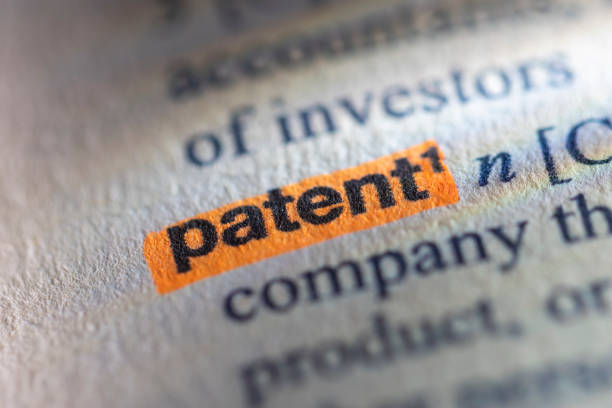Introduction
In the ever-evolving landscape of legal practice, technology has become an indispensable ally for lawyers seeking to enhance their efficiency and effectiveness. One area where technological advancements have made a significant impact is patent research. Traditionally, patent research has been a time-consuming and labor-intensive process, requiring lawyers to sift through vast amounts of information to identify relevant patents and assess their implications. However, with the advent of artificial intelligence (AI), the legal profession is experiencing a paradigm shift in the way patent research is conducted. In this blog, we will explore how AI is revolutionizing patent research, ushering in a new era for lawyers.

The Traditional Challenges of Patent Research
Before delving into the transformative role of AI in patent research, it’s crucial to understand the challenges inherent in the traditional approach. Traditionally, lawyers engaged in patent research faced several hurdles:
- Volume of Data: The sheer volume of patent data available is staggering, making it a daunting task for lawyers to manually review and analyze relevant information.
- Complexity of Language: Patent documents are notorious for their complex and technical language. Lawyers must possess a deep understanding of the subject matter, which can be a barrier for those without specialized knowledge.
- Time-Consuming Process: The manual nature of traditional patent research makes it a time-consuming process. Lawyers spend countless hours sifting through documents to identify relevant information, delaying the overall legal proceedings.
- Risk of Oversight: Human errors and oversight are inevitable in manual research processes, potentially leading to missed opportunities or, worse, legal complications.
The Role of AI in Patent Research
Artificial intelligence has emerged as a powerful tool to address the challenges associated with traditional patent research. Here’s how AI is revolutionizing the field:
- Advanced Data Processing: AI algorithms can process vast amounts of data at speeds unimaginable for humans. This capability enables lawyers to quickly sift through extensive patent databases, identifying relevant information efficiently.
- Natural Language Processing (NLP): Understanding the intricate language of patent documents is a specialty of AI, particularly in the realm of natural language processing. NLP algorithms can interpret complex technical jargon, making patent research accessible to a broader range of legal professionals.
- Machine Learning for Predictive Analysis: Machine learning algorithms can analyze patterns within patent data to make predictions about future trends. This functionality is invaluable for lawyers advising clients on potential risks and opportunities in the intellectual property landscape.
- Enhanced Accuracy and Reduction of Human Error: By automating the research process, AI minimizes the risk of human error and oversight. This ensures that lawyers have access to accurate and comprehensive information when making strategic decisions.
- Time Efficiency and Cost Savings: AI-powered patent research significantly reduces the time required for data analysis. This not only expedites the legal research process but also translates into cost savings for law firms and their clients.
Applications of AI in Patent Research
The application of AI in patent research extends across various aspects of the legal profession:
- Prior Art Search: AI algorithms can conduct thorough prior art searches, identifying existing patents and technical literature relevant to a client’s invention. This is crucial in determining the patentability of an invention and avoiding potential infringement issues.
- Patent Landscape Analysis: AI enables lawyers to conduct comprehensive analyses of patent landscapes, identifying key players, emerging trends, and potential areas for innovation. This information is invaluable for strategic decision-making and business planning.
- Infringement Analysis: AI tools can analyze existing patents to assess the likelihood of infringement. This proactive approach allows lawyers to advise clients on potential risks and formulate effective defense strategies.
- Portfolio Management: AI can assist in managing large patent portfolios by automating routine tasks such as monitoring patent expiration dates, tracking competitor activity, and identifying opportunities for portfolio optimization.
- Legal Research Assistance: AI-powered tools can assist lawyers in legal research by providing quick access to relevant case law, statutes, and regulations related to patent matters. This accelerates the legal drafting process and ensures that lawyers have up-to-date information.

Challenges and Ethical Considerations
While AI has brought about significant advancements in patent research, it is not without its challenges and ethical considerations. Some of the key concerns include:
- Bias in Algorithms: AI algorithms are only as good as the data they are trained on. If the training data is biased, the algorithms may produce biased results, potentially reinforcing existing inequalities in the patent system.
- Privacy Issues: The use of AI in patent research often involves the collection and analysis of vast amounts of data. Lawyers must navigate privacy concerns and ensure compliance with data protection regulations.
- Lack of Explainability: AI algorithms, particularly deep learning models, are often considered “black boxes” that provide results without clear explanations. This lack of explainability raises questions about transparency and accountability in the legal context.
- Intellectual Property Concerns: As AI continues to evolve, questions arise about the intellectual property rights associated with AI-generated inventions and the potential impact on the patent system.
The Future Landscape of AI in Patent Research
As technology continues to advance, the future of AI in patent research holds exciting possibilities. Some trends and developments to watch for include:
- Integration of Blockchain: The use of blockchain technology can enhance the security and traceability of patent-related data, providing a transparent and tamper-proof record of intellectual property rights.
- Collaboration Between Humans and AI: The most effective approach may involve a collaborative effort between legal professionals and AI tools. Human expertise is essential for contextual understanding, ethical considerations, and strategic decision-making.
- Continued Improvement in NLP: Natural language processing will likely see continuous advancements, making AI tools even more proficient in understanding and interpreting the complex language of patent documents.
- Global Collaboration on AI Standards: As AI becomes more integral to patent research on a global scale, there may be increased efforts to establish common standards and guidelines to ensure the ethical and responsible use of AI in the legal profession.
Conclusion
The integration of artificial intelligence into patent research marks a transformative moment in the legal profession. Lawyers can now harness the power of advanced algorithms to navigate the complexities of patent data, leading to increased efficiency, accuracy, and strategic decision-making. While challenges and ethical considerations persist, ongoing developments in AI technology and a commitment to responsible use will likely shape a future where lawyers and AI work hand-in-hand to revolutionize patent research. As the legal landscape continues to evolve, embracing these technological advancements will be essential for legal professionals seeking to stay at the forefront of the intellectual property field. The era of AI-powered patent research has arrived, opening new possibilities and shaping the way lawyers approach intellectual property matters in the 21st century.

Leave a Reply